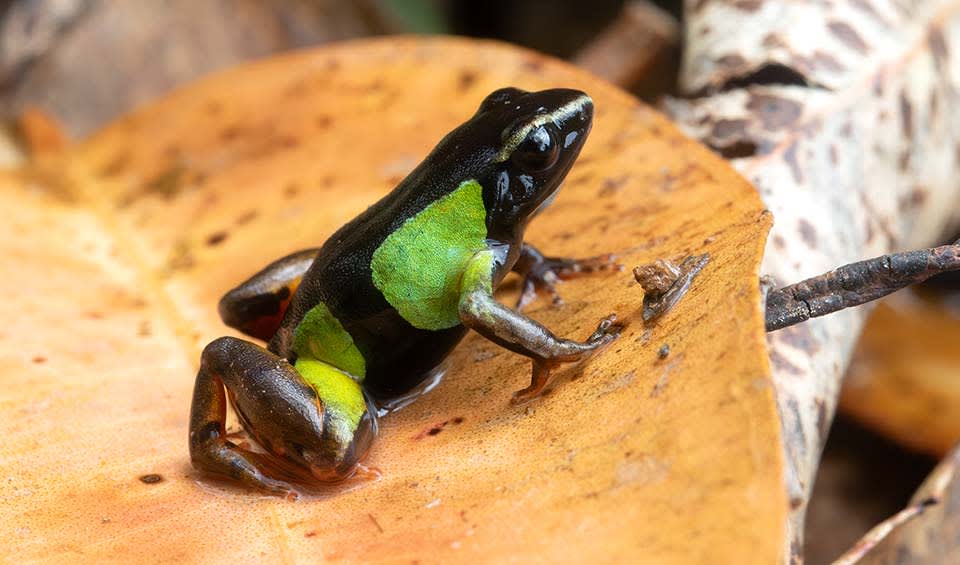A tiny frog that lives on the island of Madagascar, located off the southeast coast of Africa. Despite rarely growing larger than an inch or two, this small amphibian stands out thanks to its vibrant colors, which can include oranges, yellows, greens, and blues. These bright patterns are not only beautiful but also serve as a warning to predators that the frog is poisonous. Although they carry toxins, they pose little threat to humans unless someone handles or ingests them, which is still highly discouraged.
During the daytime, Madagascan mantellas become active hunters, venturing out to feed on ants, termites, fruit flies, and small beetles. Their keen eyesight helps them catch these insects, and their bold nature makes them curious explorers of the forest floor. Even though they are frogs, they are not strong swimmers, so they tend to avoid deep water and stick to damp leaf litter, shallow puddles, or other moist places that can keep their skin from drying out.
Unlike some frogs known for loud, continuous croaking, Madagascan mantellas use softer clicks and chirps to communicate. These sounds carry through the forest when it rains, which is the time of year they are most active and often looking for mates. By calling out in this way, they can find partners and also warn nearby mantellas of any potential dangers.
One of the key roles the Madagascan mantella plays in its environment is controlling insect populations. Because they feast on many small bugs, they help keep these insect communities in balance, providing an important service in their ecosystems.
Distribution
 Madagascar
MadagascarAnything we've missed?
Help us improve this page by suggesting edits. Glory never dies!
Suggest an editGet to know me
Terrestrial / Aquatic
Altricial / Precocial
Polygamous / Monogamous
Dimorphic (size) / Monomorphic
Active: Diurnal / Nocturnal
Social behavior: Solitary / Pack / Herd
Diet: Carnivore / Herbivore / Omnivore / Piscivorous / Insectivore
Migratory: Yes / No
Domesticated: Yes / No
Dangerous: Yes / No




